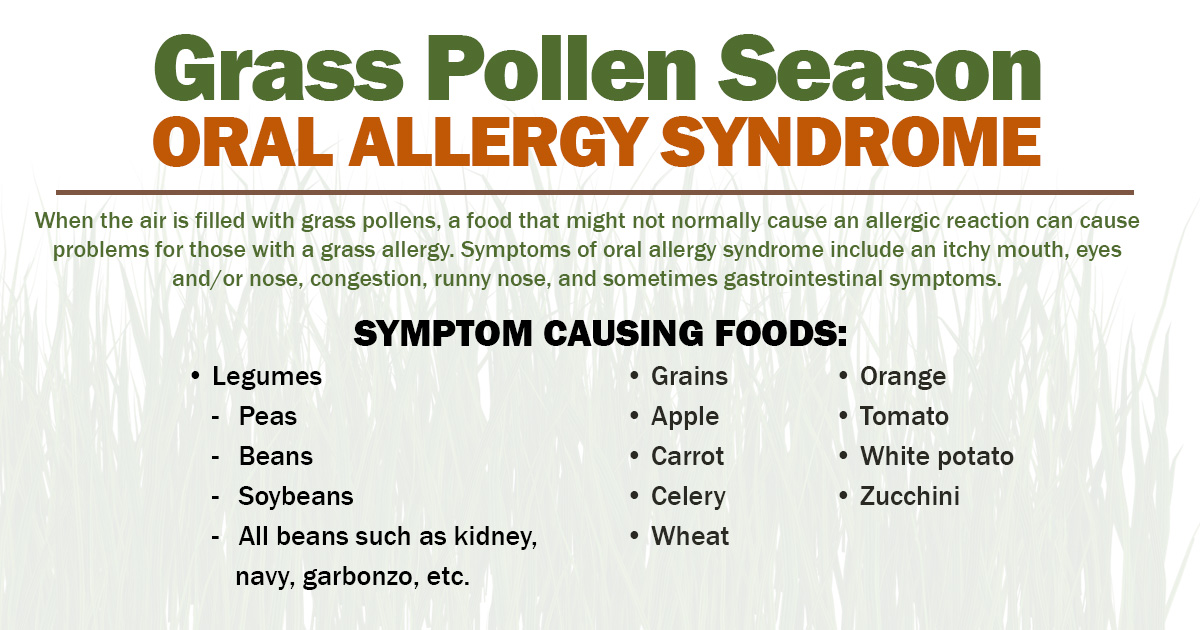Grass Allergies
 Grass pollen is one of the most common environmental allergies. You can have an allergic reaction to grass by direct contact or by breathing in its pollen.
Grass pollen is one of the most common environmental allergies. You can have an allergic reaction to grass by direct contact or by breathing in its pollen.
Grass pollen allergy symptoms
- Runny or congested nose
- Sneezing
- Itchy eyes, nose, ears, and mouth
- Watery, red eyes
- Swelling around your eyes
While there are many different types of grass, they all have a fairly similar make up, so people who are allergic to one are likely allergic to several. See a grass pollen identification guide.
Common allergy-causing grasses
- Fescue
- Johnson
- Bahia
- Timothy
- Redtop
- Perennial rye
- Kentucky bluegrass
- Orchard
- Bermuda
- Sweet vernal
As grass begins to grow from late spring into summer, grass allergy symptoms become prevalent as pollen circulates in the wind.
Oral Allergy Syndrome
For those with tree, weed and grass pollen allergies, certain foods may also cause localized reactions – like itchy throat. It’s called Oral Allergy Syndrome. Because the protein structures in foods like fruits and vegetables are similar to those found in tree, grass and weed pollen, they can cause itching and tingling to the mouth and throat. For example, if you’re allergic to grasses, consuming peaches, watermelon, tomatoes, white potatoes and oranges during the pollen season may cause additional symptoms.
How can allergy drops help grass allergy?
Because avoiding grass altogether is just not realistic, building tolerance to grass pollen can help reduce reactions and the need for antihistamines. Sublingual immunotherapy can be an effective form of treatment for those suffering from grass allergy.
Seasonal allergy control tips
- Close windows
- Remove your shoes when going inside
- Shower after being outdoors
- Avoid spending time outside on dry, windy days
- Wear sunglasses and/or mask to keep pollen out of your eyes and mouth
- Wash clothing after being outdoors
- Monitor pollen counts before enjoying outdoor activities

